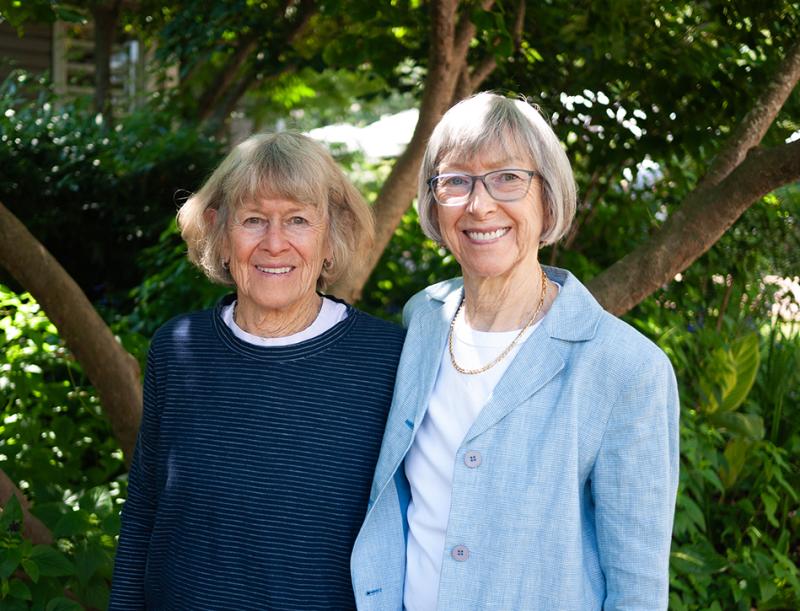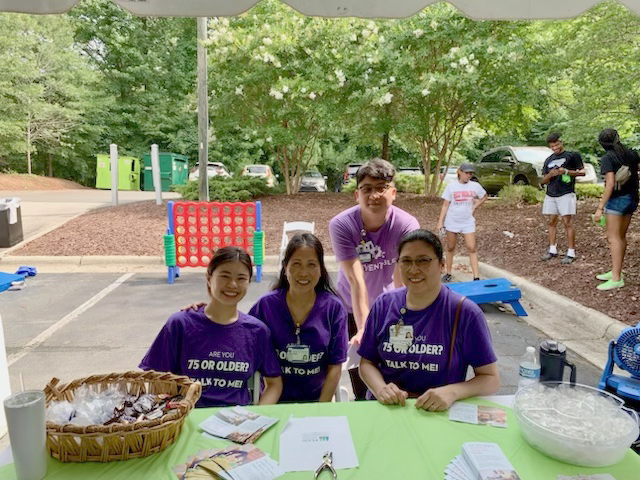
Sisters Rebecca Kirkland and Mary Trent Jones are no strangers to volunteering, spending decades serving on boards, with Rebecca on the Duke University Board of Trustees and the Duke Health Board of Directors, and Mary on the Duke Endowment. These sisters are two of the over 8,000 volunteer study participants in the PREVENTABLE study, with a goal of recruiting many more over the next few years.
PREVENTABLE — a study testing whether a commonly used heart medication (the statin atorvastatin) can prevent dementia, disability, and heart disease — is enrolling adults 75 years and older in the United Sates. Funding is provided by the National Institute on Aging and the National Heart, Lung, and Blood Institute. The Duke Clinical Research Institute (DCRI) is the Clinical Coordinating Center for PREVENTABLE, and the Principal Investigator Karen Alexander, MD is DCRI faculty.
Adults age 75 years and older without prior cardiovascular disease events or dementia are randomized to atorvastatin 40mg or a placebo and followed for up to four years.
This pragmatic trial performs cognitive screening by phone, uses remote-enabled consent and randomization, and tracks participants’ outcomes via their medical records. The study drug is mailed directly to participants. Enrollment is possible either at the national telesite or at one of the 90 U.S. sites, including 40 VA hospitals and 50 medical centers.
Rebecca heard about PREVENTABLE from her primary care provider. As a retired medical doctor, she felt it was a real plus for her that most of the participation involved phone calls instead of an in-person clinic visit. In addition to being a part of the main study, testing whether a statin can prevent dementia, disability, and heart disease, Rebecca also joined one of the PREVENTABLE ancillary studies. The ancillary studies are looking at frailty, whether calcium in the heart can guide treatment for heart disease, whether a statin prevents declines in physical performance, and the behavior between sedentary behavior and dementia.
While Rebecca has participated in clinical research all her life, her sister Mary had never been a part of a research study.
“When Rebecca told me about it,” Mary said, “I thought maybe I would be interested too. Just for fun.”
She’s seen firsthand the ways dementia has affected friends and family, including her sister Rebecca, who now serves as a caregiver for her husband, visiting him in a long-term care facility every day.
“The other reason why I think (the study) would be interesting to us is because our stepfather had dementia, and we saw in different ways how mother was affected by it,” Mary said. “So, it'd be interesting to see if this does help.”
'Can my mom join too?'

Having family members join a research study at the same time isn’t common, but it does happen occasionally, and PREVENTABLE has more than one family connected by the study.
Trina Phan, Lead Research Coordinator for the Duke University PREVENTABLE site, recently connected with a mother and daughter pair of participants over shared stories. Phan said she aims to let her personality shine and put participants at ease to create space for collaboration and communication.
As a Vietnamese American individual and child of immigrants whose family was hesitant about western medicine, inspiring trust and addressing participant concerns is important to Phan.
“One of my favorite things about working with the PREVENTABLE patients is the stories they tell. I love hearing the stories,” Phan said. “I love when they pull up pictures of their family members.”
Through her work, Phan helps answer patient and participant questions, shares her story, and learns alongside those who are hesitant, just like her family was.
“There are a lot of things in healthcare that are unknown when adults turn 75. That's actually a huge reason why this study is being done, and why we're doing the ancillary studies. We're not just trying to tackle dementia, we are trying to change so many parts of the standard of care for older adults.”
Those interested in participating can visit www.preventablecommunity.org or call the national telesite at 1-833-385-3899 to speak with a bilingual staff member directly.